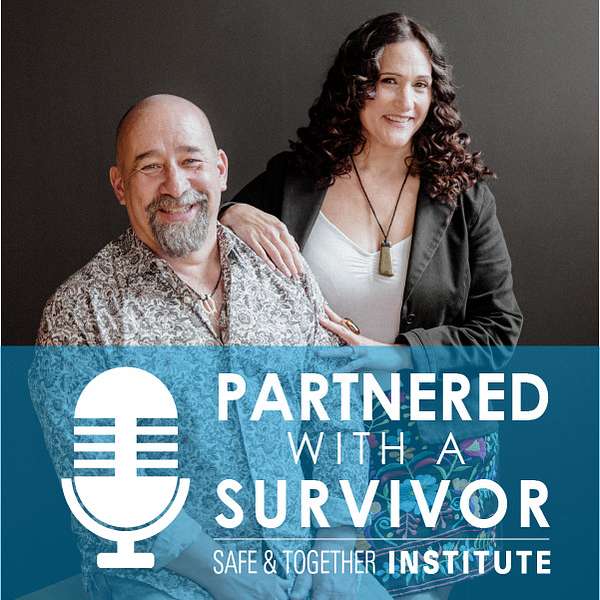
Partnered with a Survivor: David Mandel and Ruth Reymundo Mandel
This podcast is a series of conversations.
What started as a series of intimate conversations between Ruth and David that ranged from personal to professional experiences around violence, relationships, abuse, and system and professional responses which harm, not help, has now become a global conversation about systems and culture change. In many episodes, David and Ruth are joined by a global leader in different areas like child safety, men and masculinity, and, of course, partnering with survivors. Each episode is a deep dive into complex topics like how systems fail domestic abuse survivors and their children, societal views of masculinity and violence, and how intersectionalities such as cultural beliefs, religious beliefs, and unique vulnerabilities impact how we respond to abuse and violence. These far-ranging discussions offer an insider look into how we navigate the world together as professionals, as parents, and as partners. During these podcasts, David and Ruth challenge the notions which keep all of us from moving forward collectively as systems, as cultures, and as families into safety, nurturance, and healing.
We hope you join us.
Have an idea for a podcast? Tell about it here: https://share.hsforms.com/1l329DGB1TH6AFndCFfB7aA3a1w1
Partnered with a Survivor: David Mandel and Ruth Reymundo Mandel
Season 3 Episode 12: Weaponize & Fabricate: How Domestic Violence Perpetrators’ Behaviors Intersect with Survivors’ Mental Health and Substance Misuse Issues
Toxic Trio. Triple Play. Trifecta.
All over the globe, professionals working with families have shorthand jargon that reflects the prevalence of the complex mixture of issues that many families experience. Unfortunately, these phrases do not usually enhance the ability to partner with survivors or intervene with perpetrators.
In this episode, David and Ruth take a deep dive into how the Safe & Together Model’s intersections framework offers a more powerful and accurate way to discuss the relationship between mental health, substance misuse, and domestic violence. Point by point they explore how perpetrators' behaviors intersect with adult and child survivors’ mental health and substance misuse. They examine how perpetrators cause, exacerbate, interfere with, fabricate, and weaponize these issues. They highlight the importance of contextualizing the survivors’ issues back to the perpetrators’ pattern and envisioning how perpetrators might be part of the solution instead of part of the problem.
Related Episodes
Season 3 Episode 2: Perpetrators’ Weaponization Of Mental Health And Addiction Against Survivors
Season 2, Episode 5: How Professionals Can Avoid Being Manipulated By Perpetrators
Episode 30: 4 Ways The Concept Of Trauma Bonding Works Against Survivors
Now available! Mapping the Perpetrator’s Pattern: A Practitioner’s Tool for Improving Assessment, Intervention, and Outcomes The web-based Perpetrator Pattern Mapping Tool is a virtual practice tool for improving assessment, intervention, and outcomes through a perpetrator pattern-based approach. The tool allows practitioners to apply the Model’s critical concepts and principles to their current case load in real
Check out David Mandel's new book Stop Blaming Mothers and Ignoring Fathers: How to Transform the Way We Keep Children Safe from Domestic Violence.
Visit the Safe & Together Institute website.
Start taking Safe & Together Institute courses.
Check out Safe & Together Institute upcoming events.